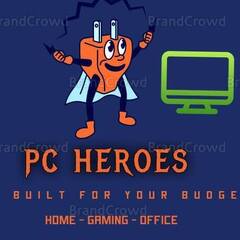Is this true?
-
Topics
-
frozensun ·
Posted in Storage Devices1 -
0
-
Squishy1015 ·
Posted in Troubleshooting3 -
5
-
4
-
CosmicEmotion ·
Posted in Linux, macOS and Everything Not-Windows1 -
8
-
2
-
Bigchungusbutbigger ·
Posted in CPUs, Motherboards, and Memory13 -
Carroma ·
Posted in New Builds and Planning7
-
-
play_circle_filled

Latest From Linus Tech Tips:
Every Monitor Fails This Test… Except One - Sun Vision rE rLCD Display
-
play_circle_filled

Latest From ShortCircuit:
The World's Fastest CPU (Technically...) - Intel i9-14900KS














Create an account or sign in to comment
You need to be a member in order to leave a comment
Create an account
Sign up for a new account in our community. It's easy!
Register a new accountSign in
Already have an account? Sign in here.
Sign In Now